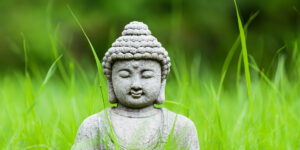
Recent world events may have left you despairing about the state of humanity. News and other media allow us to witness and keep up to date with developments on a minute by minute basis. The upside to this is that we are kept ‘informed’, though sometimes it might feel better not to know! (and keep in mind the subjectivity and bias of most news sources), but on the other hand, social media quickly latch on to events and they can become distorted in no time.
It seems everyone using social media has, indeed is required to have, an opinion on pretty much everything. Reactive behaviour proliferates; online spats, abuse and trolling abound and a nasty, negative mess ensues.
Recent events have significantly reinforced polarised opinions and reactions are often dictated by political allegiances, dogma and crude tribalism. Defensiveness and paranoia are rulers in this world, as are Pavlovian and knee-jerk reactions which reflect a deeply engrained negative mindset. This is a closed world in which creative solutions are starved of oxygen and openness has no place.
‘There’s no such thing as good or bad, but thinking makes it so..’
Shakespeare’s words remind us that judging and labelling are activities of the mind and the ego. The latter loves to comment and judge because it makes it feel better about itself and gives it something to do. The danger is that we end up being ‘too much in the mind’ and these attachments spiral out of control.
In his third book’ A New Earth’ Eckhart Tolle does not hold back in his assessment of the state of the world:
‘The collective manifestations of the insanity that lies at the heart of the human condition constitute the greater part of human history. It is to a large extent a history of madness. If the history of humanity were the clinical case history of a single human being, the diagnosis would have to be : chronic paranoid delusions, a pathological propensity to commit murder and acts of extreme violence and cruelty against his perceived ‘enemies’ – his own unconsciousness projected outward. Criminally insane, with a few brief lucid intervals.’
And in the earlier ‘Power of Now’, he is characteristically enlightening about this self-created pain and its origin – fear :
‘Fear seems to have many causes. Fear of loss, fear of failure, fear of being hurt, and so on, but ultimately all fear is the ego’s fear of annihilation. To the ego, death is always just around the corner. In this mind-identified state, fear of death affects every aspect of your life. For example, even such a seemingly trivial and “normal” thing as the compulsive need to be right in an argument and make the other person wrong – defending the mental position with which you have identified – is due to the fear of death. If you identify with a mental position, then if you are wrong, your mind-based sense of self is seriously threatened with annihilation. So you as the ego cannot afford to be wrong. To be wrong is to die. Wars have been fought over this, and countless relationships have broken down.’
The good news is that Eckhart does go on to postulate an end to this madness through a raising of human consciousness, which he claims is beginning to emerge. He stresses though that this has to begin with the individual and that transformation will not be manifest if :
‘people attempt to change external reality – create a new earth – without prior change in their inner reality, their state of consciousness. They make plans without taking into account the blueprint for dysfunction that every human being carries within ; the ego.’
By Bob Heath






